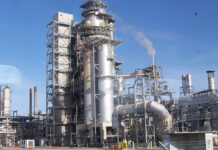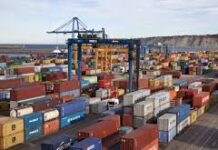
What Will Bashir Adeniyi International Trade Centre Offer?
By Abdulsalam Mahmud
Nigeria’s economy is facing critical challenges that are affecting citizens’ livelihoods and hindering national progress. These economic woes are partly the result of fiscal policies that have proven inadequate in addressing the country’s problems.
Insecurity is another significant obstacle, with banditry, insurgency, kidnapping, and other violent crimes ravaging large parts of the nation. This instability has discouraged foreign direct investment (FDI), limiting the country’s economic opportunities.
Furthermore, Nigeria’s focus on imports rather than exports has restricted its ability to engage in international trade, further constraining its economic potential. Experts and global financial institutions often point to Nigeria’s low levels of trade and investment as key barriers to its economic growth.
The World Bank highlights that the country’s limited export diversification and over-reliance on oil exports have left its economy vulnerable to fluctuations in global oil prices, which has impeded consistent economic development.
The International Monetary Fund (IMF) has also raised concerns over Nigeria’s insufficient foreign direct investment (FDI), which accounted for only 0.5% of its GDP in recent years—significantly lower than many emerging markets.
The IMF points out that persistent insecurity and complex regulatory hurdles discourage foreign investors, despite Nigeria’s vast potential. According to the United Nations Conference on Trade and Development (UNCTAD), Nigeria’s share of global FDI inflows has fallen by over 30% in the past decade, trailing behind several African peers like Egypt and South Africa.
UNCTAD attributes this decline to Nigeria’s heavy reliance on imports, which discourages the growth of a vibrant, export-driven economy and stifles local manufacturing. Similarly, data from Nigeria’s National Bureau of Statistics (NBS) shows that the country’s trade deficit has surged by nearly 40% in recent years, due to high import volumes and low export growth.
To reverse this troubling trend, Nigeria must urgently explore ways to enhance its international trade and attract greater foreign investment. This is where the newly-inaugurated Bashir Adeniyi Centre for International Trade and Investment can play a pivotal role.
Read Also:
The centre, launched by the Nigeria Customs Service (NCS) in collaboration with the Nigerian Institute of International Affairs (NIIA), represents a timely intervention to address the country’s trade and investment challenges. Named after the Comptroller General of Customs (CGC), Bashir Adewale Adeniyi, the centre was officially opened in Lagos state recently.
In his address following the unveiling, CGC Adeniyi expressed confidence in the centre’s future impact, stating, “The establishment of this Centre comes at an opportune time as Nigeria is repositioning itself in the global trade environment. As we continue to advance these initiatives, I envision that this Centre will evolve into a comprehensive national think tank focused on international trade and investment.”
Professor Eghosa Osaghae, the Director General of NIIA, further emphasized the centre’s strategic importance, noting that it would act as a “finishing school” for senior customs officers. “Today, we are very pleased as an Institute to announce to the world that we now have the Bashir Adeniyi Centre for International Trade and Investment.
“This centre will serve as a finishing school for senior officers in customs, offering senior executive courses that will be certificated. Because this is the NIIA, we will do this as a global affair, properly immersing the Nigeria Customs Service in the framework of the World Customs Organisation,” he said.
The event also featured a panel discussion with prominent Nigerian figures, including Donald Duke, a former Governor of Cross River State; and Dr. Chinyere Almona, who addressed key challenges and proposed solutions for Nigeria’s trade and investment landscape.
Reflecting on the centre’s potential, Adeniyi highlighted its role in building capacity and fostering awareness of the importance of international trade. He said, “We have a strong commitment to our mandate of trade facilitation, among other things. We believe that the centre will be a centre of excellence in building capacity and, most importantly, creating awareness about the necessity of conducting international trade.
“Trade brings prosperity, and we hope that this centre will foster prosperity through trade.” The Bashir Adeniyi Centre for International Trade and Investment holds the power to transform Nigeria’s economy. It will reshape how the country interacts with global trade and investment.
The Centre will foster an environment where trade is the primary driver of national prosperity, unlocking new avenues for sustainable economic growth. It will help Nigeria overcome its economic challenges and embrace a future where trade and investment are central to national growth.
With its potential to reshape the nation’s approach to global trade, the question now is not if the Centre will fulfill its purpose of establishment, but how quickly it will unlock new opportunities for prosperity and global competitiveness for Nigeria.
Mahmud, Deputy Editor of PRNigeria, can be reached via: [email protected].













































